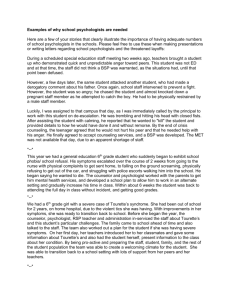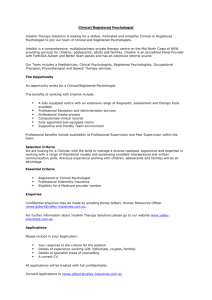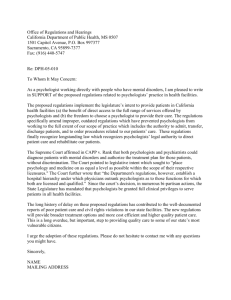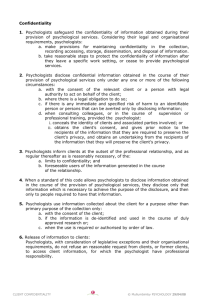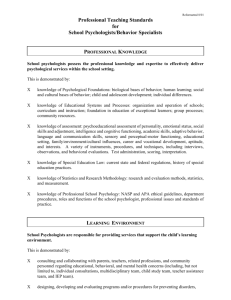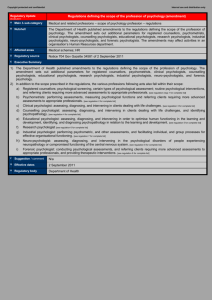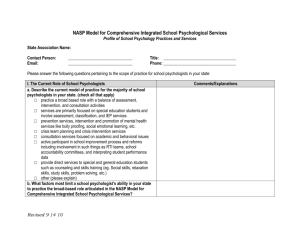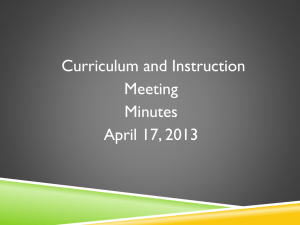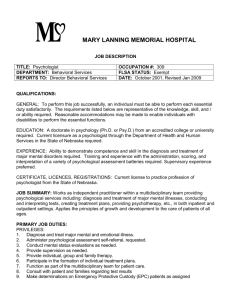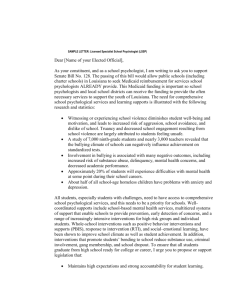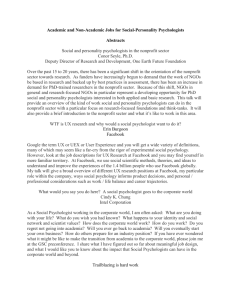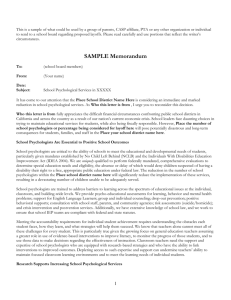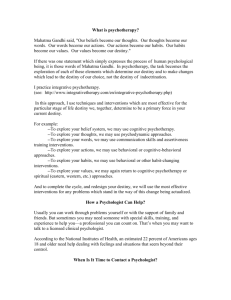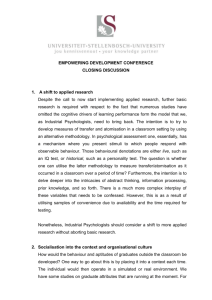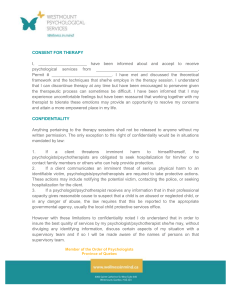Clinical Psychology at Balnacraig - information
advertisement
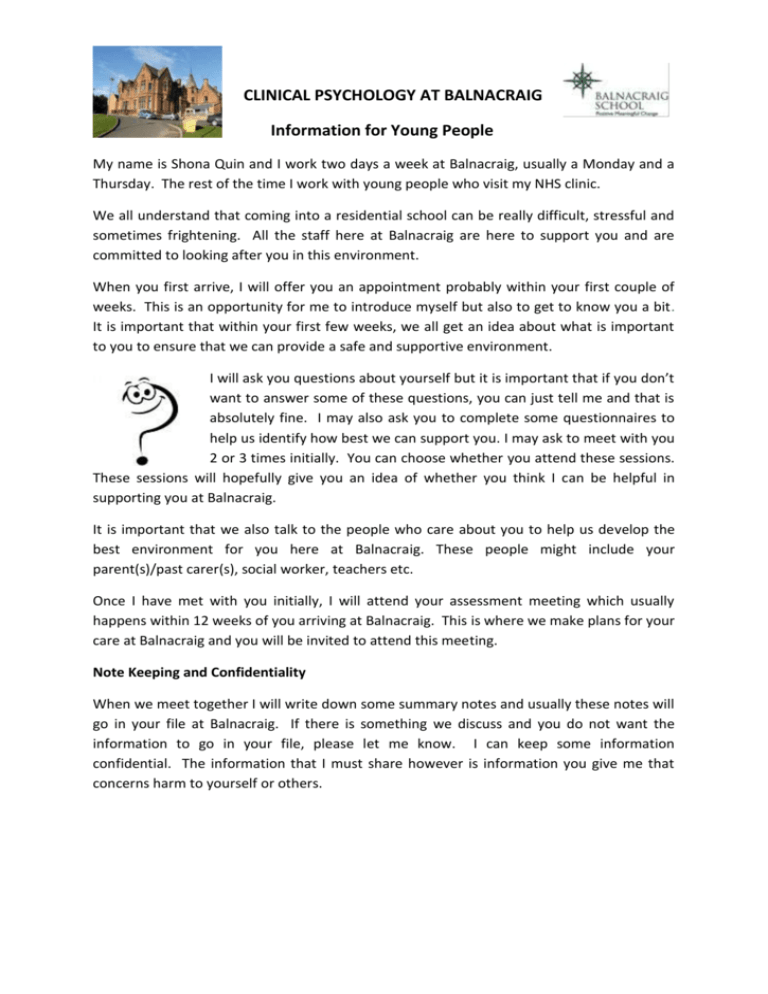
CLINICAL PSYCHOLOGY AT BALNACRAIG Information for Young People My name is Shona Quin and I work two days a week at Balnacraig, usually a Monday and a Thursday. The rest of the time I work with young people who visit my NHS clinic. We all understand that coming into a residential school can be really difficult, stressful and sometimes frightening. All the staff here at Balnacraig are here to support you and are committed to looking after you in this environment. When you first arrive, I will offer you an appointment probably within your first couple of weeks. This is an opportunity for me to introduce myself but also to get to know you a bit. It is important that within your first few weeks, we all get an idea about what is important to you to ensure that we can provide a safe and supportive environment. I will ask you questions about yourself but it is important that if you don’t want to answer some of these questions, you can just tell me and that is absolutely fine. I may also ask you to complete some questionnaires to help us identify how best we can support you. I may ask to meet with you 2 or 3 times initially. You can choose whether you attend these sessions. These sessions will hopefully give you an idea of whether you think I can be helpful in supporting you at Balnacraig. It is important that we also talk to the people who care about you to help us develop the best environment for you here at Balnacraig. These people might include your parent(s)/past carer(s), social worker, teachers etc. Once I have met with you initially, I will attend your assessment meeting which usually happens within 12 weeks of you arriving at Balnacraig. This is where we make plans for your care at Balnacraig and you will be invited to attend this meeting. Note Keeping and Confidentiality When we meet together I will write down some summary notes and usually these notes will go in your file at Balnacraig. If there is something we discuss and you do not want the information to go in your file, please let me know. I can keep some information confidential. The information that I must share however is information you give me that concerns harm to yourself or others. What is a Psychologist? Psychologists work in many different areas of society Some psychologists support people to overcome psychological distress for example; low mood, feelings of anger, stress and anxiety Some psychologists work in schools. They may be involved in assessing a young person’s ability to ensure that the right level of support is offered Some psychologists help the police, courts and prison service to understand the motives behind crimes that are committed and to work with people who end up serving time for an offence Some psychologists help athletes and professional sports people to perform better Some psychologists support families where one member may have a very serious illness Some psychologists work in businesses, helping managers get the best from their teams What is a Clinical Psychologist? A clinical psychologist is someone who aims to support people to reduce any psychological distress that a person may be experiencing. Also a clinical psychologist works to improve psychological wellbeing. Everyone at some time will feel a form of psychological distress. This may be anxiety, low mood, anger or fear. This is normal. Sometimes, however, these feelings stop us from doing things or become overwhelming. Everyone feels overwhelmed by emotion at some point in their lives. A clinical psychologist will listen to someone who is feeling overwhelmed. Talking about how we feel helps us to understand why we are struggling and can help us think together about ways forward. I am here to listen! Most people who see a clinical psychologist DO NOT have a mental illness. Clinical Psychologists DO NOT prescribe medication but prefer to support resolution through talking. I look forward to meeting with you and wish you every success at Balnacraig. Shona Quin


